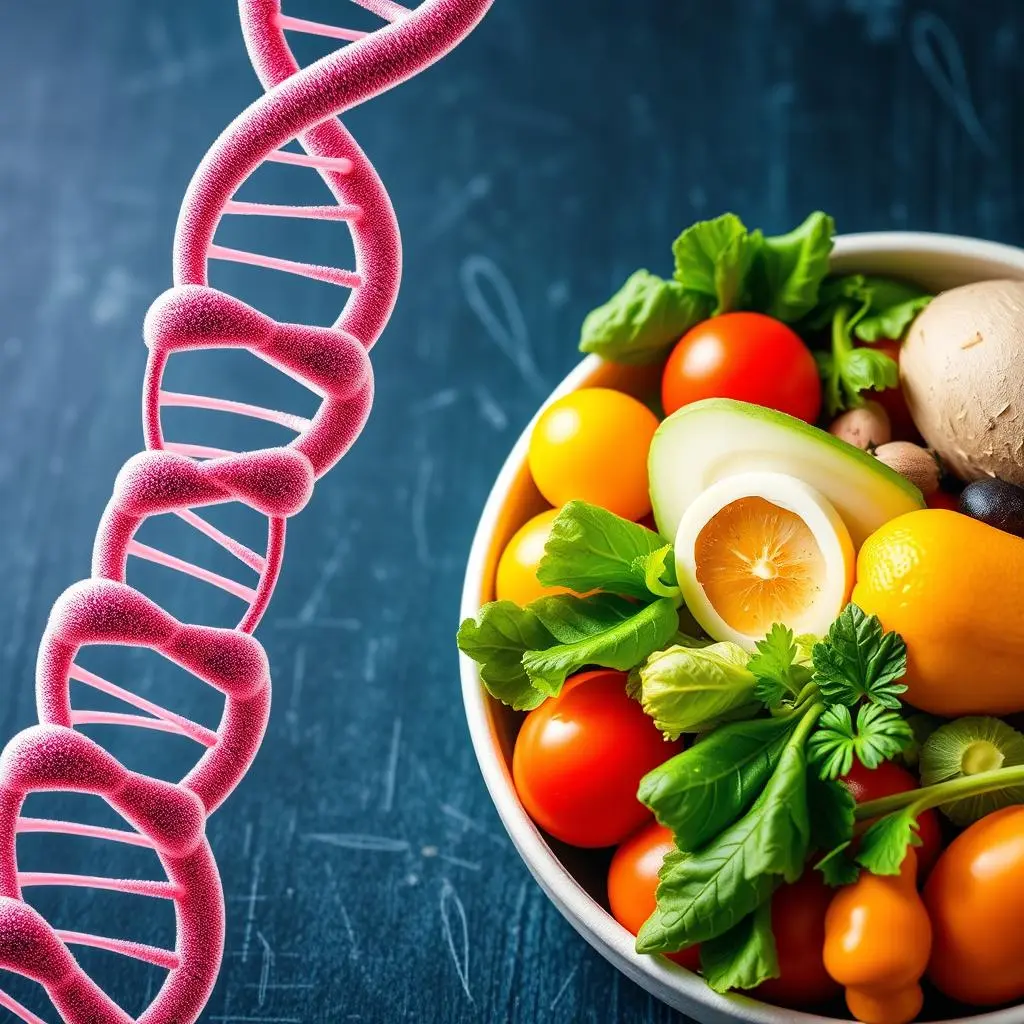
Did you know that even nutrition is in our genes? Nutrigenomics studies the interaction between a person’s genetic makeup and their response to various nutrients. In simple terms, it’s what your body genetically absorbs and what it doesn’t.
This field offers new opportunities for creating personalized diets that can significantly improve health and prevent chronic diseases.
In this article, we will tell you all about this field of science.
What is Nutrigenomics
Nutrigenomics combines genetics and nutrition. Therefore, it is a science that aims to understand how genetic differences affect the body’s response to diet. And also how nutrition can change gene expression.
This opens the way to a more precise and personalized approach to nutrition that can improve health and prevent disease.
Mechanisms of interaction
Genetic variations and metabolism. Genetic variations can significantly affect the metabolism of nutrients. For example: If a person has a version of a gene that makes enzymes more active, their body will process fats or carbohydrates more quickly. If the version of the gene is less active, the process will be slower. Thus, genetic differences can affect how quickly and efficiently our bodies process different types of food.
Gene expression and nutrition. Nutrients can affect how our genes work by changing their activity. This happens through epigenetic mechanisms – “extra instructions” that do not change the DNA itself, but affect how it is used. For example: Some vitamins and minerals can add or remove chemical tags on DNA. These changes can affect processes in our bodies, such as inflammation or aging. So, what we eat can change how our genes work and, therefore, our health.
Research examples. Research shows that people with certain genotypes can have different responses to diets. For example: People with a genotype that helps them absorb vitamin D more efficiently may benefit more from sunlight and vitamin D supplements than others.
Diets can be developed based on genetic information. These are tailored to individual needs. This may include recommendations on food choices, optimal macronutrient balance, and avoidance of certain substances that may cause adverse reactions.
Some companies already offer tests for genetic predisposition to various diseases and develop personalized nutrition plans based on the results of these tests.
More research is needed to use nutrigenomics accurately and safely. This includes studying how personalized nutrition affects health in the long term. We need to know what the results will be and how it may change our health many years from now.
The Future of Nutrigenomics
- Nutrigenomics has the potential to make significant changes in the fields of medicine and nutrition. Better understanding of the interactions between genes and nutrients could lead to new methods of preventing and treating diseases
- It will be possible to develop diets that are tailored to each person based on their genetic profile. This means that nutritional recommendations will be tailored to the individual, helping to improve health and prevent disease.
- People will be able to receive recommendations on the optimal balance of macronutrients (fats, carbohydrates, proteins) and micronutrients (vitamins and minerals) that are best suited to their genetic profile.
- Knowing the genetic predisposition to certain diseases will help create nutritional strategies to prevent them. For example, if a person is prone to cardiovascular disease, they can be advised to follow a diet that reduces the risk of these diseases.
- To treat existing diseases, personalized nutrition plans can be created that will help improve treatment outcomes and reduce side effects.
- Personalized nutrition can help people better cope with daily stress and strain, improving overall well-being and quality of life.
Conclusion
Nutrigenomics offers exciting opportunities to improve health and prevent disease through personalized nutrition. However, to realize these opportunities, several scientific, ethical and practical challenges must be overcome. As research in this field continues to advance, we will see significant advances in creating diets tailored to individual genetic profiles.